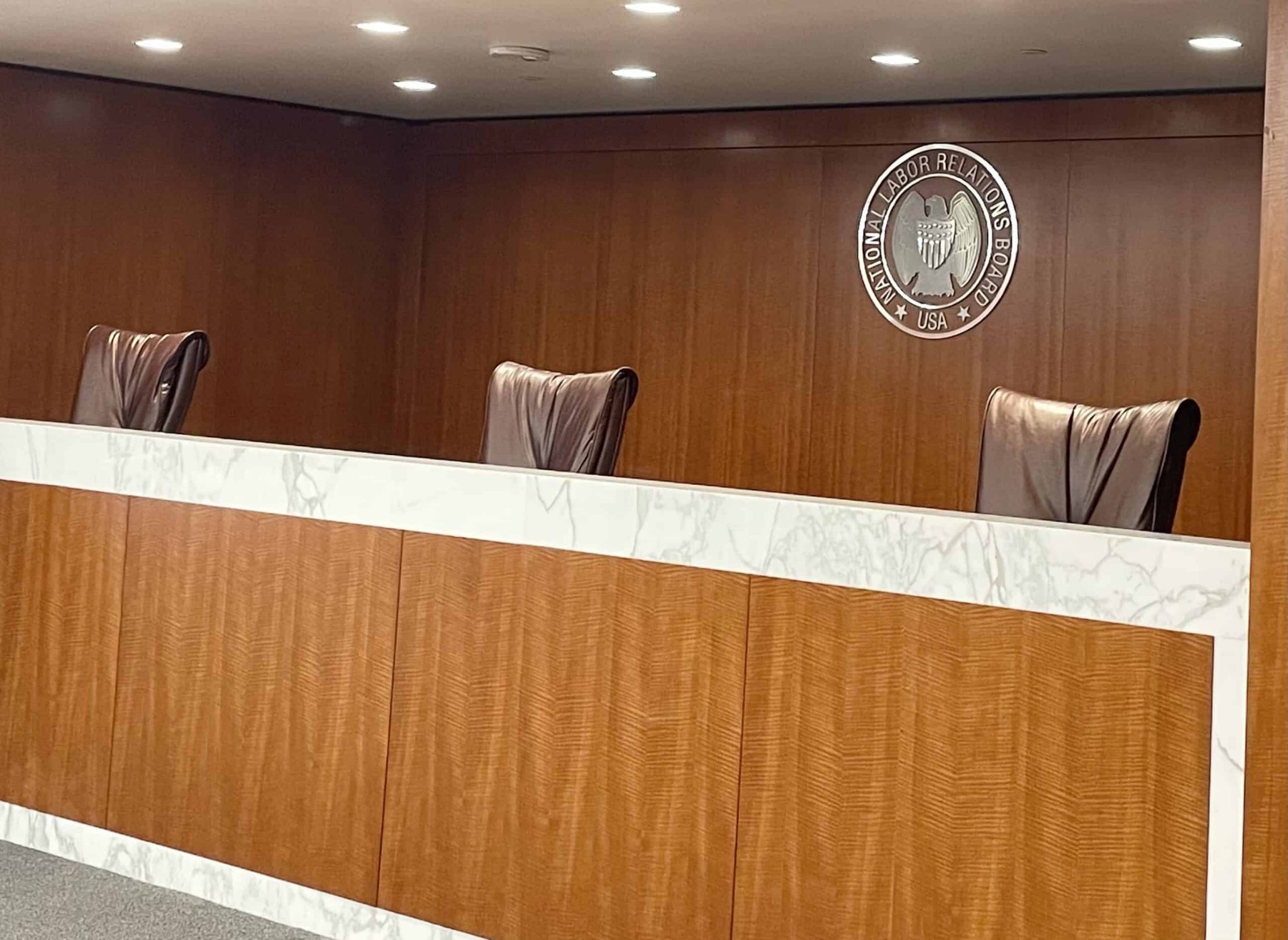
Swap Agrawal is a student at Harvard Law School.
In this weekend’s news and commentary, workers at a Chipotle in Lansing, Michigan became the first to organize one of the chain’s 3,000 locations; U.S. Senator Bob Casey urged the Department of Labor to take action on the use of workplace surveillance technology, including by Amazon; and the U.S. Court of Appeals for the D.C. Circuit said the NLRB must reconsider a ruling over discrimination between unions.
On Thursday, August 25, workers at a Chipotle in Lansing, Michigan voted 11 to 3 to unionize with the International Brotherhood of Teamsters, making it the first of the chain’s 3,000 locations to organize. The union said in a statement that workers are unionizing to improve work schedules, increase wages, and gain respect from management. “Chipotle pulled in revenue of $7.5 billion last year, and just as we’re seeing workers of all ages and backgrounds across the country take on these corporate giants, it’s so inspiring to see Chipotle workers stand up and demand more from a company that can clearly afford it,” said Scott Quenneville, President of Local 243. Chipotle issued a statement stating that it is “disappointed that the employees at our Lansing, MI restaurant chose to have a third party speak on their behalf because we continue to believe that working directly together is best for our employees.” The restaurant chain permanently closed its location in Augusta, Maine after workers filed for union recognition several months ago, a common union-busting tactic in the retail and fast food industries.
On Thursday, August 26, U.S. Senator Bob Casey (D-PA) sent a letter to Department of Labor Secretary Marty Walsh urging the administration to take oversight action on the emergence of workplace surveillance technologies. “The implementation of novel technologies to track, monitor, manage and discipline workers is growing due to an imbalance of power in the workplace and a lack of legal protections or regulatory restrictions on these behaviors,” wrote Senator Casey. “Without oversight, more and more intrusive technologies will be implemented in the workplace. It is incumbent on the Department of Labor to stay at the forefront of these issues on behalf of workers and to monitor and regulate workplace privacy and technology issues before they become the norm.” The letter identified certain ‘novel and high-risk technologies’ that need to be studied further, including facial and emotional recognition, biometric monitoring, wearables, productivity management systems and algorithm-driven employee performance systems.
On Friday, August 26, a panel of the U.S. Court of Appeals for the D.C. Circuit said that the National Labor Relations Board must reconsider its ruling that Everport, a port terminal operator in Oakland, California, illegally favored members of the International Longshore and Warehouse Union (ILWU) and deprived mechanics represented by the International Association of Machinists and Aerospace Workers (IAM) of jobs. Everport had argued that it was legally obligated to hire ILWU mechanics under a 1970s agreement between the union and the Pacific Maritime Association (PMA), a multi-employer bargaining representative that Everport had joined in 2015. Meanwhile, the Board said in 2020 that Everport’s membership in the PMA was irrelevant because the company’s decision to fire IAM mechanics showed clear animus against the union. The D.C. Circuit said the board’s conclusion was arbitrary because it had ignored a clear, non-discriminatory reason for Everport to favor ILWU mechanics.






Daily News & Commentary
Start your day with our roundup of the latest labor developments. See all
March 2
Block lays off over 4,000 workers; H-1B fee data is revealed.
March 1
The NLRB officially rescinds the Biden-era standard for determining joint-employer status; the DOL proposes a rule that would rescind the Biden-era standard for determining independent contractor status; and Walmart pays $100 million for deceiving delivery drivers regarding wages and tips.
February 27
The Ninth Circuit allows Trump to dismantle certain government unions based on national security concerns; and the DOL set to focus enforcement on firms with “outsized market power.”
February 26
Workplace AI regulations proposed in Michigan; en banc D.C. Circuit hears oral argument in CFPB case; white police officers sue Philadelphia over DEI policy.
February 25
OSHA workplace inspections significantly drop in 2025; the Court denies a petition for certiorari to review a Minnesota law banning mandatory anti-union meetings at work; and the Court declines two petitions to determine whether Air Force service members should receive backpay as a result of religious challenges to the now-revoked COVID-19 vaccine mandate.
February 24
In today’s news and commentary, the NLRB uses the Obama-era Browning-Ferris standard, a fired National Park ranger sues the Department of Interior and the National Park Service, the NLRB closes out Amazon’s labor dispute on Staten Island, and OIRA signals changes to the Biden-era independent contractor rule. The NLRB ruled that Browning-Ferris Industries jointly employed […]